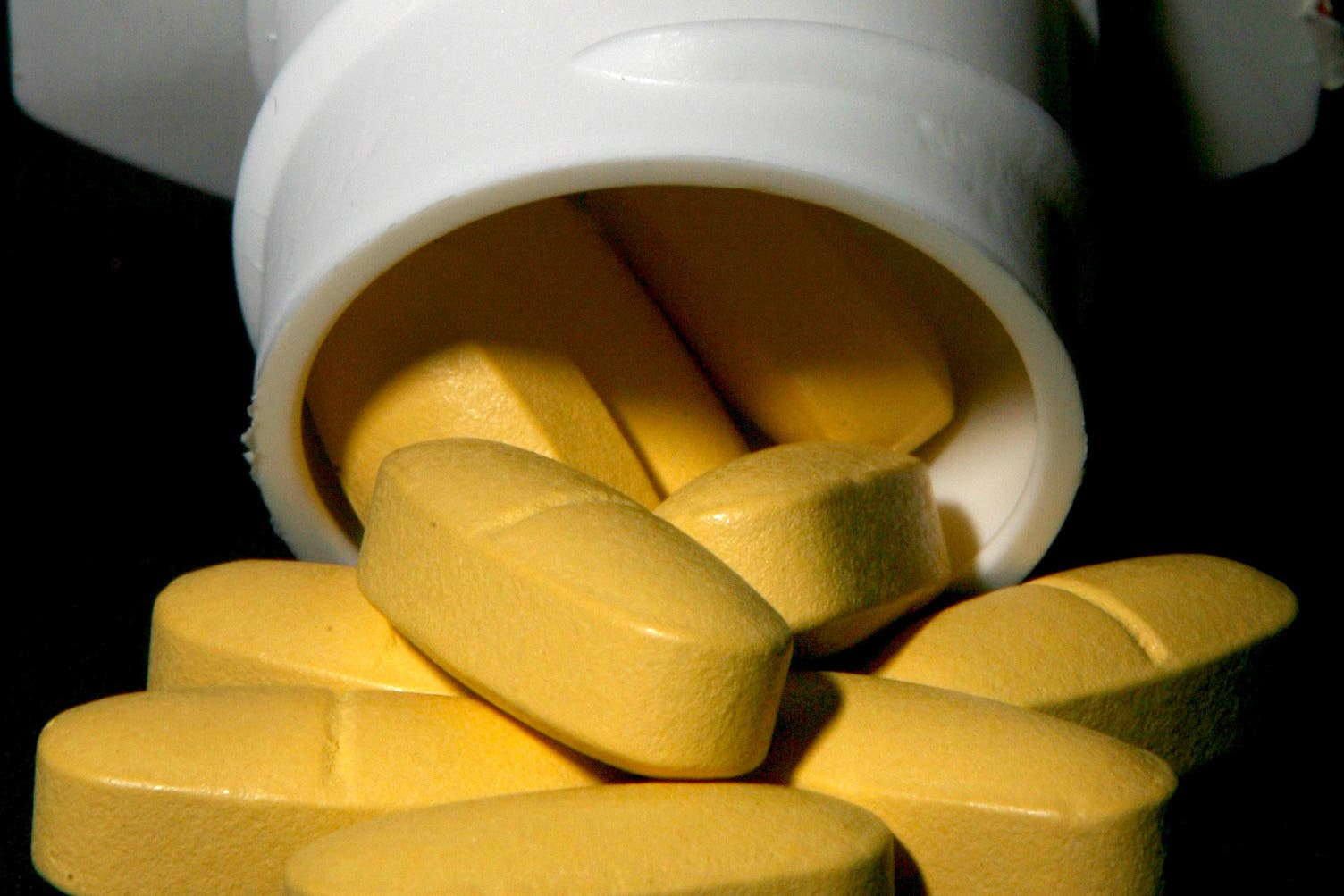Did I have a drinking problem – or was it caused by ADHD?
When Melanie Rickey gave up drinking it didn’t stop her ‘washing machine brain’ from turning. It was only after she wrote about it for this newspaper that someone pointed out that something else might be going on. Here’s what happened next...


How much do you know about dopamine? You might be low on dopamine now, as you recover from your new year’s partying. It’s the neurotransmitter of pleasure, anticipation, reward and hedonistic ecstasy. Its production in our brains is stimulated by sex, drugs, smoking, alcohol, shopping, gaming, gambling, eating, social media, sugar and even coffee. Our chase for it powers the compulsive overconsumption of most things. It’s why Ozempic is the quick fix of the decade, and though it regulates sugar levels, recent research suggests that what it’s also quelling is dopamine reward pathways.
A lack of dopamine results in withdrawal, comedowns, craving and buyer’s remorse, until it settles back into balance. The answer to low dopamine is often to chase more, and when dopamine balance is wildly out of control, it results in addiction, and a never-ending see-saw of pleasure-seeking and painful withdrawal.
Back in October, I wrote a piece for The Independent that became a catalyst for my entire life to make sense and change for the better, and it’s a tale about chasing dopamine. The story was about my utter bafflement as to why – three and half years after going to rehab to quit drugs and alcohol, joining a 12-step fellowship and becoming every cliche of a recovery warrior – I was still struggling with what addicts affectionately call “washing machine brain”.
WMB is the unpleasant surprise that, despite being clean and sober, we still struggle with a busy, anxious, fearfully procrastinating mindset, one full of self-doubt and churning thoughts no amount of serenity prayers and gratitude lists can silence for long. Think a dozen yappy chihuahuas shouting equally loudly at you from inside your head to do something, and not knowing which yap to listen to and act on, and you get the idea.

It wasn’t what I signed up for when I crossed the threshold of rehab back in March 2020. Sobriety is supposed to fix you, right? Well, sort of. Taking away the drug of choice might be lifesaving, but it also reveals the thorny reality of the problems you’ve always had and were trying to fix by drowning them out with a substance. Managing them is the real work of recovery.
Practising sobriety in 12-step and other programmes also, without saying it explicitly, teaches addicts to regulate their dopamine balance. It’s why we do 90 meetings in our first 90 days and get taught how to manage cravings by observing the impulse and waiting for it to pass. I learned all this from my favourite book on the subject, Dopamine Nation by Dr Anna Lembke, a Stanford psychiatrist and my guru on all things dopamine.
Sobriety has given me plenty of tools to deal with a traumatic childhood, impulse control, and the death of my younger sister. However, the WMB was getting exhausting, and I was ready to accept that I would never be good enough when the final puzzle piece fell into place.
Here comes perhaps the cliche which shouldn’t be a cliche – and it took someone on my Instagram comments to point out the obvious – my washing machine brain has a medical name: ADHD. Inattentive ADHD to be more specific, which, to no surprise, is a condition in part related to low dopamine in the brain, and it’s medicated by controlled drugs that increase dopamine levels. Turns out, after seeking out a professional opinion, that I’d been living with ADHD, and self-medicating it, my entire adult life.
Inattentive ADHD is different to the hyperactive type, which is more commonly ascribed to young boys. With my diagnosis, the hyperactivity is mainly in the mind and causes problems with executive dysfunction – or as it’s called in neurospicy circles “ADHD paralysis”, and the other retrospective bane of my life, rejection sensitive dysphoria, also known as taking everything extremely personally to the point of debilitation. Finding names for these parts of ADHD symptomology was a revelation.

My official diagnosis came through working with Danny Kungebeharry of ADHD Connect, who launched his practice after working 15 years as an ADHD Specialist within the NHS, and who most recently carried out his work in a prison where ADHD is extremely common among the population.
The first thing he highlighted was the Panorama documentary which exposed some private ADHD clinics, accusing them of giving incorrect diagnoses to clients and charging them exorbitant fees for the privilege. Danny is a private clinician, and while he is costly, he also encouraged me to get onto the very long NHS waiting list for treatment. I’ve done this and also applied to the government’s Access to Work grant for coaching. Full marks for transparency.
The diagnostic process with Danny was an initial two-and-a-half-hour assessment in which I gave my full psychiatric history. He spoke to my mother for verification and ensured my GP notes were reviewed. We also completed several forms together, the DIVA 5, BAARS IV, Weiss, and WEMWBS, which, when analysed together, produced the answer to a lifetime of problems. If you’re mulling an ADHD assessment, ensure these steps are carried out.
Addiction and ADHD are cosy bedfellows. People with ADHD lack the ability to produce the right amount of dopamine to feel what psychiatrists call “homeostasis,” or balance, and what we lack we unconsciously seek from other sources. Some studies suggest the prevalence of cocaine use among adults with ADHD at about 26 per cent. I would put it at a much higher rate, based on my own personal experiences of fellow addicts with the condition. It crosses into the alcoholic population too: ADHD is five to 10 times more common among adult alcoholics than it is in people without the condition.
Learning about ADHD has put my addiction history into sharp focus. Before sobriety my ADHD – if I’d known there was a name for it then – was nothing a fortifying vodka soda and cocaine cocktail couldn’t sort out. With a substance inside me, a calmer, more focused, sparkly, and fun version of myself always came to the fore. Sweet dopamine! This had worked marvellously for years, until my career, marriage and mental health fell apart and I admitted defeat and checked into rehab.
As someone with an addiction history, and 43 months of clean time, I was initially extremely wary, (read, petrified!) of taking any medication, but after weighing up the options with Danny, we opted for a low dose of lisdexamfetamine, known as Elvanse in the UK, and Vyvanse in the US. There’s a worldwide shortage of the drug, but I managed to find a 20mg dosage, and then moved up to 30mg, the lowest recommended dose for ADHD treatment.
The effect of the drug was, for me, almost instantaneous. Within an hour, my busy brain stopped whirring, and a calm, laser-like focus descended. Thoughts now come one at a time and can be acted upon in a linear fashion. It feels incredible, yet also normal – this must be how I imagine most people experience life.
Word of warning, though, you need a plan on Elvanse – no plan, and you can end up focussing on something pointless, like rearranging a cupboard. It’s also an appetite suppressant, (Elvanse is also a treatment for binge-eating) so food intake prior to taking the pill is crucial. The drug works for six-to-seven hours, and then tails off. I don’t use it daily, only when I need to complete set tasks and meet deadlines. Drugs are not the only answer to ADHD treatment, and many people choose coaching and other services that are popping up to serve the ADHD community.

The best alternative tool I’ve found so far, and which I use alongside the medication, is what is known as “body-doubling”. This is where the ADHD-er works alongside someone in person or virtually, to stay on task, and not float into digression. The US firm Focus Blocks was my first experience of it, and I’ll be signing up to Flown this week, a new British body-doubling app.
Has all this made a difference? 100 per cent yes. I’ve achieved more towards my goals in the last six weeks than I have in years. My partner sees the change in my confidence and happiness, but also worries I’ve lost too much weight, and this worries me too. Will I take this for life? We’ll see.
What I do firmly believe, though, is that my neurodivergence is at the root cause of my problem with addiction. There is also mounting evidence to suggest that people who take ADHD medication are more likely than their untreated counterparts to drink or abuse drugs because they are chasing dopamine. If more people suffering from drug or alcohol abuse understood the correlation between ADHD and addiction, they, or a family member, might be able to get the help they need.
I’m convinced an earlier diagnosis and the correct medication would have prevented my problems from going on for so long. But I’ll never know. What I do know is that my medication works and while using it the washing machine brain is quiet.
My miracle for 2024.






Join our commenting forum
Join thought-provoking conversations, follow other Independent readers and see their replies
Comments